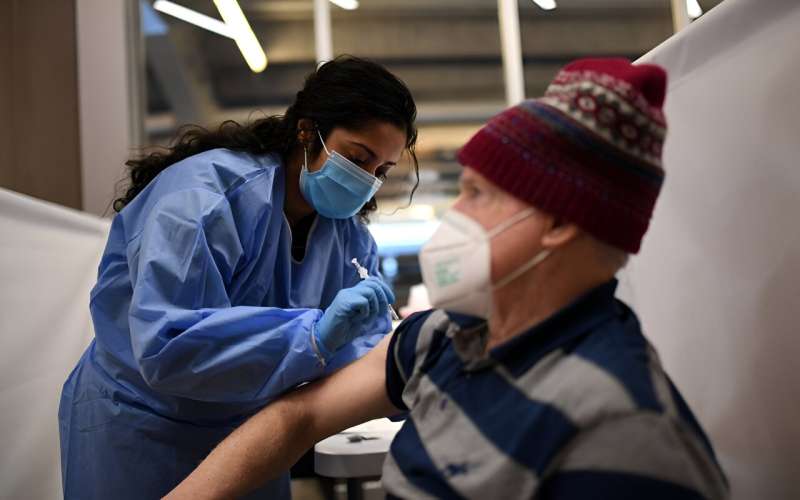This article has been reviewed according to Science X's editorial process and policies. Editors have highlighted the following attributes while ensuring the content's credibility:
fact-checked
trusted source
proofread
Study explores how opposing viewpoints may have impacted vaccine hesitancy

As the COVID-19 pandemic raged throughout the country in 2020, politics, memes and public messaging converged to dramatically influence individuals' decisions regarding the in-development COVID vaccines, according to a new article by researchers at the University at Albany's Massry School of Business and Washington State University's Carson College of Business.
In "Reexamining health messages in the political age: The politicization of the COVID-19 pandemic and its detrimental effects on vaccine hesitancy," published in the Journal of Consumer Affairs, authors Ionnis Kareklas, Devipsita Bhattacharya, Darrel D. Muehling and Victoria Kissekka examine how voters' political leanings informed their decision to receive a COVID-19 vaccine.
"We explore how radically opposing viewpoints regarding the pandemic may have eroded public trust in government institutions and health science during the months leading up to the 2020 U.S. presidential election," said Kareklas, associate professor and chair of Marketing at UAlbany, who led the investigation.
The authors also reviewed how memes on social media played a role in affecting viewers' attitudes toward health care, especially whether they would get a COVID-19 vaccine. Analysis of the researchers' data revealed that survey respondents relied heavily on social media to get trustworthy vaccine information, yet most vaccination-related memes were anti-vaccine.
Along with survey data, Kareklas and his team analyzed 18,000 tweets containing pictures of COVID-19 anti-vaccine memes/pictures from Twitter between Oct. 30 and Nov. 11, 2020.
They found that the memes generally fell into three categories:
- Memes about inefficacy of COVID-19 vaccines
- Memes about the vaccine being deliberately promoted and encouraged
- Memes about the harmful effects of COVID-19 vaccines
The memes often incorporated logical or rhetorical fallacies, including appealing to anger, suppressing evidence, misleading vividness or deliberate lies.
"These findings from Twitter, along with those of our first survey, prompted us to consider further the potential impact of meme-based, politically persuasive communications on individuals' COVID-19 vaccination decisions," said Kareklas.
The third study assessed participants' level of trust in medical, scientific evidence and government institutions, with the goal of determining if public sentiment could be swayed.
"Here, we observed a striking dichotomy between Trump and Biden voters," continued Kareklas. "Specifically, while Biden (compared to Trump) voters were significantly more likely to indicate that their trust in government had decreased in the last four years, Trump (compared to Biden) voters were significantly more likely to indicate their trust in medical, scientific evidence had decreased. Such polarized positions regarding these vital public health institutions (i.e., science and government) further documents the politicization of health science."
These political and philosophical divisions have created an environment where it has become increasingly challenging for health agencies to fulfill their mission to protect the nation, both during the pandemic and in similar future situations, according to the researchers.
"The private and public disagreements among politicians and health experts made it especially difficult to have a coherent policy for addressing the pandemic and consistent messaging regarding how to combat COVID-19," said Kareklas.
The findings do suggest, however that, consistent with the source credibility literature, messaging campaigns that feature a highly credible spokesperson who is perceived to have high levels of expertise and trustworthiness could differentially influence individuals who are hesitant to trust government institutions.
According to former CDC director Tom Frieden, who participated in the focus group, several focus group participants changed their minds about taking the vaccine after hearing the facts without political spin from doctors, as opposed to taking advice from politicians.
More information: Ioannis Kareklas et al, Reexamining health messages in the political age: The politicization of the COVID‐19 pandemic and its detrimental effects on vaccine hesitancy, Journal of Consumer Affairs (2023). DOI: 10.1111/joca.12553
Provided by University at Albany




















